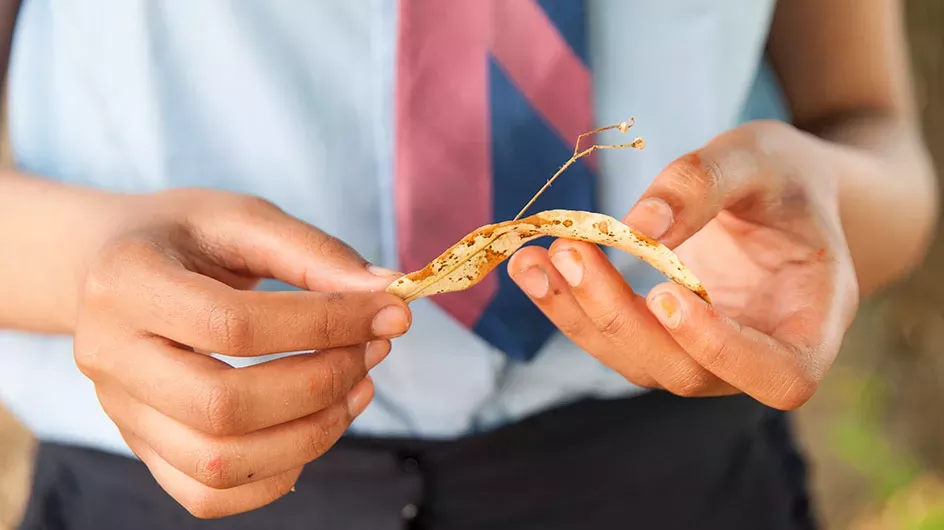KS3 Plant reproduction
Get to grips with the sexual life of plants and examine the fascinating world of flowers and seeds in Kew’s living laboratory.

What is a flower? How are seeds dispersed? Get to grips with the sexual life of plants and examine the fascinating world of flowers and seeds in Kew’s living laboratory.
What makes the perfect flower for reproduction? Why do some pollinators prefer certain flowers? How are seeds adapted for different dispersal methods? Become a Kew scientist and examine plant reproduction from the amazing variety of plants in Kew’s collection. Investigate their relationship with pollinators, how fertilisation takes place and how seeds are formed and dispersed.
Learning Outcomes:
Students will be able to:
- Explain different types of plant reproduction
- Identify and describe the function of sexual parts of a flowering plant
- Understand the role of flower colour and structure to attract pollinators
- Identify and describe a variety of seed dispersal methods
Key words
reproduction, sexual, asexual, flower, stamen, anther, filament, carpel, stigma, style, ovary, ovule, pollen, pollen tube, pollination, fertilisation, seed, fruit, dispersal
Curriculum Links
KS3 Science Biology
Structure and function of living organisms
Reproduction
- Reproduction in plants, including flower structure, wind and insect pollination, fertilisation, seed and fruit formation and dispersal, including quantitative investigation of some dispersal mechanisms.
Interactions and interdependencies
Relationships in an ecosystem
- the interdependence of organisms in an ecosystem, including food webs and insect pollinated crops
- the importance of plant reproduction through insect pollination in human food security
Working scientifically
Scientific attitudes
- pay attention to objectivity and concern for accuracy, precision, repeatability and reproducibility
Experimental skills and investigations
- ask questions and develop a line of enquiry based on observations of the real world, alongside prior knowledge and experience
- make predictions using scientific knowledge and understanding
- select, plan and carry out the most appropriate types of scientific enquiries to test predictions, including identifying independent, dependent and control variables, where appropriate
- use appropriate techniques, apparatus, and materials during fieldwork and laboratory work, paying attention to health and safety
- make and record observations and measurements using a range of methods for different investigations; and evaluate the reliability of methods and suggest possible improvements
